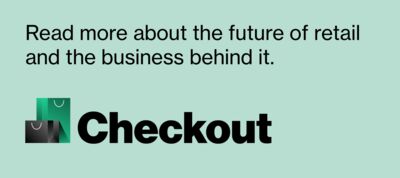The Australian Company Selling China on Easier-to-Digest Milk
A2 Milk Co. has struck it rich on the mainland selling infant formula from cows that produce only the A2 protein.
By
Carol Matlack
December 6, 2018, 10:00 AM GMT+13 Updated on December 6, 2018, 11:38 AM GMT+13

About 12,000 specialty stores in China stock A2 Milk.
PHOTOGRAPHER: QILAI SHEN/BLOOMBERG
LISTEN TO ARTICLE
5:04
SHARE THIS ARTICLE
Share
Tweet
Post
Email
Global dairy giants have reaped a windfall in China since a 2008
tainted-milk scandal sent parents scurrying to buy infant formula from foreign suppliers. Multinationals including
Danone SA and
Nestlé SAtoday control more than half the $23.4 billion Chinese market. But lately a different health concern has provided entree for a scrappy challenger from Down Under.
A2 Milk Co., with offices in Australia and New Zealand, has more than doubled its Chinese market share over the past year, to 5.6 percent. Its selling point: milk from New Zealand dairy herds that produce only a protein known as A2, which the company contends is easier to digest than the blend of A1 and A2 proteins found in most European and U.S. herds. The naturally occurring variation in protein content stems from genetic differences among cattle breeds.
A2 “is building a passionate following from consumers,” says Jayne Hrdlicka, the U.S.-born chief executive officer. “We see a huge opportunity”—not only in China, where it sells powdered infant formula, but also in the U.S., where the company has started selling chilled fresh A2-only milk at retailers including
Costco,
Walmart, and
Whole Foods.
Founded in 2000 by a New Zealand scientist and a wealthy dairy producer, A2 Milk started its push into China about five years ago after building a following in Australia and New Zealand and listing on stock exchanges in both countries. Its U.S. business is relatively small and unprofitable, but it’s pushing for growth, with about 8,000 stores now carrying milk that it sources from A2-only U.S. herds.

An A2 Milk Co. facility in Sydney.
PHOTOGRAPHER: BRENDON THORNE/BLOOMBERG
The company’s global sales rose 68 percent in the year through June, to $610 million.
Bloomberg Intelligence estimates that China accounts for at least half of that revenue, equally divided among purchases within the country and those made in Australia and shipped to China, often by professional shoppers known as
daigou. The globe-trotting daigou thrive by giving mainland consumers access to foreign branded items, from foods to high-fashion handbags—sometimes sidestepping customs duties that raise the cost of imported goods.
Chinese parents, spooked by health and safety scares, including an
infant vaccine scandal early this year, are splurging on premium goods for their kids. A2 Milk’s Platinum formula is positioned near the top of the market, with a week’s supply generally selling online for 209 yuan to 228 yuan ($30-$33), about the same as Danone’s Chinese best-seller
Aptamil. Claims about digestibility are another attraction for China, where lactose intolerance is prevalent. Small-scale studies in China and Australia found that lactose-intolerant people experienced less intestinal discomfort after drinking A2 milk compared with an A1-A2 blend, but the scientists said more research was needed.
A2 Milk’s fast growth contrasts with a 20 percent drop in Chinese formula sales by Danone from June 30 to Sept. 30. The market leader, with an estimated 24 percent share, Danone blamed the decline in part on lower birthrates and stepped-up customs enforcement on cross-border sales of formula. U.K.-based
Reckitt Benckiser Group Plc, which owns formula maker Mead Johnson, also suffered a third-quarter drop in China sales. It cited technical problems at a Dutch factory but said it expects sales growth to weaken. Nestlé’s China sales are still rising, though its market share has remained at about 15 percent for the past few years. Nestlé recently launched its own A2 protein-only formula in China.
The Australian upstart faces big challenges. It’s more dependent than competitors on the daigou trade, making it especially vulnerable to customs enforcement, although the company says many of its daigou vendors already pay required import duties and wouldn’t be affected by stepped-up enforcement. A2 Milk also needs to enlarge its distribution network in China; about 12,000 specialty stores around the country now stock its formula. “Questions remain about the sustainability of growth,” Sam Teeger, a Sydney-based Citigroup analyst, wrote in a recent client note.
In the U.S., dairy producers dispute the Australian company’s marketing claims that A2 milk is “easier on digestion” and “may help some avoid discomfort.” The
National Milk Producers Federation says the claims aren’t adequately supported by research and filed a complaint with the national advertising division of the
Better Business Bureau. In October, the bureau referred the matter to the
Federal Trade Commissionwithout commenting on the merits of the complaint.

A2 Milk says its advertising has passed muster with regulators in California, as well as in other countries. “The dairy industry has done what big incumbents do when they get a little uncomfortable,” says CEO Hrdlicka. “They try to create some noise. We’ve got very substantial science that sits behind our business.”
Hrdlicka, 56, took over as A2 Milk’s CEO in July after eight years as a top executive at Australian airline
Qantas Airways Ltd. She says the fast-growing company is ready to take on competitors in China and the U.S. “Competition is good, it draws more attention to the category,” Hrdlicka says. “The first mover is the very significant beneficiary.”
—With Angus Whitley, Rachel Chang, and Weiyi Qiu
(Updates locations of A2 Milk offices in second paragraph.)
BOTTOM LINE - A2 Milk is winning converts in China and elsewhere. But U.S. dairy companies are contesting claims that the Australian company’s milk can be easier to digest.
 (20min delay)
(20min delay)









